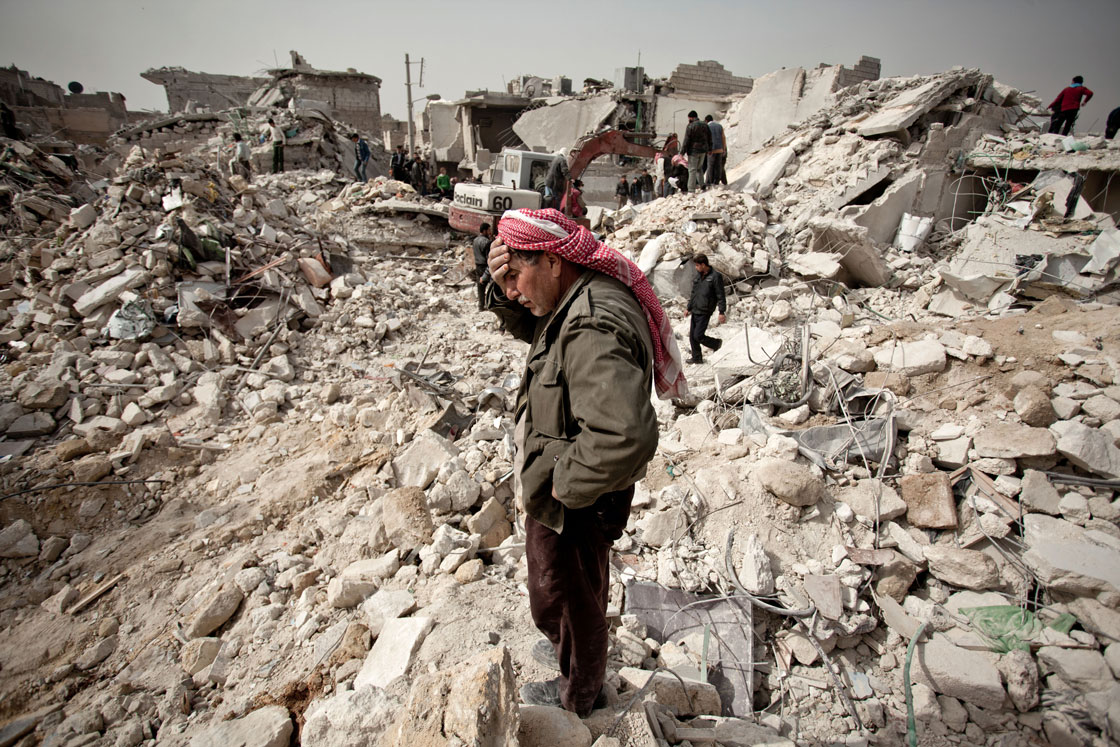In Armenian, Hagop means jackal.

It’s the nickname Matyos Bazajian went by in the early 1980s in Aleppo, his hometown in northern Syria, when the now 49-year-old Torontonian joined other Armenians in open opposition to the ruling Assad regime.
Much like a defiant canine might be for refusing to come to heel, Bazajian was beaten by government forces in three separate protests before fleeing to Canada in 1987.
Now living with his wife and daughter in the Toronto suburb of North York, Bazajian no longer fears for his life; the fears have instead shifted 9,100 kilometres east, back to Aleppo, where the same regime Bazajian escaped from is said to be using lethal chemical weapons in the region where his in-laws still live – and are now trapped in.
He fears his brother-in-law, who must continue to work and travel about in the city, “might be killed any time” from sniper fire or a regime military strike.
As Western governments decide whether to take action against Assad’s regime, a full-blown humanitarian crisis is cascading across Syria and beyond.
Canada’s Department of Foreign Affairs estimates 1.6 million Syrians have fled the country, going into neighbouring states or further abroad. The current death toll stands at more than 93,000.
Perhaps amazingly, the Internet continues to operate, allowing communications in and out of the country, providing a vital lifeline between Syrian expats and loved ones inside Syria.

Get breaking National news
The flow of information out reports a dire situation: severe shortages of food and other basic goods like medical supplies. The strain is doubly severe in rebel-controlled regions such as Aleppo.
“There’s a shortage of everything: gas, bread, electricity, services. Medicine or drugs are impossible to get,” Bazajian’s family tells him. “Aleppo is completely seized right now.”
The crisis appears less critical in government-controlled territories.
Syrian government trade officials are reportedly working to unlock millions in funds frozen in European banks under Western government sanctions in order to purchase half a million tonnes of wheat, sugar and rice.
Western governments—including Canada—have tightened the economic noose around the country since mid-2011 as President Bashar al-Assad has pursued an increasingly brutal crackdown on rebel forces seeking to oust the regime.
Food aid is an exception, however. “Although it is unclear to what extent the regime has been able to tap into frozen assets, the worsening humanitarian situation may compel Western governments to unofficially allow such funds to be used for purchasing food staples,” Torbjorn Soltvedt, an analyst at London-based risk consultant Maplecroft, told Reuters.
Similar to relief efforts pledged by other governments, in June Ottawa earmarked $115 million to help manage the escalating crisis. Most of that has flowed toward food and shelter in camps being built by Red Cross and others to house refugees who have sought safety in neighbouring Jordan.
“They’re the ones that are accessible,” Janice Stein, director for the Munk School of Global Affairs at the University of Toronto said in a phone interview Tuesday.
The remaining money is aimed at efforts to get food and medical assistance to those still inside the country. But success is far from guaranteed.
“They can reach some, but not all, of the needy population,” Stein said. “When a city is being shelled, humanitarian workers can’t get in, or the Syrian government denies access – and we’ve seen instances where rebel forces deny access, as well.”
It means at best heightened uncertainty for Bazajian’s family. “The situation is not getting better. It’s getting worse and worse,” he said.
Still, the Syrian Canadian Council, on whose board Bazajian sits, wants Assad gone. By force, if necessary.
What will fill the vacuum left by the removal of a government that’s held power for more than three decades is a question to answer after the regime’s removal, Bazajian said.
“You want security first. Once you have that you want leaders, and leaders have to come from all factions. The same as Canada, the United States.








Comments